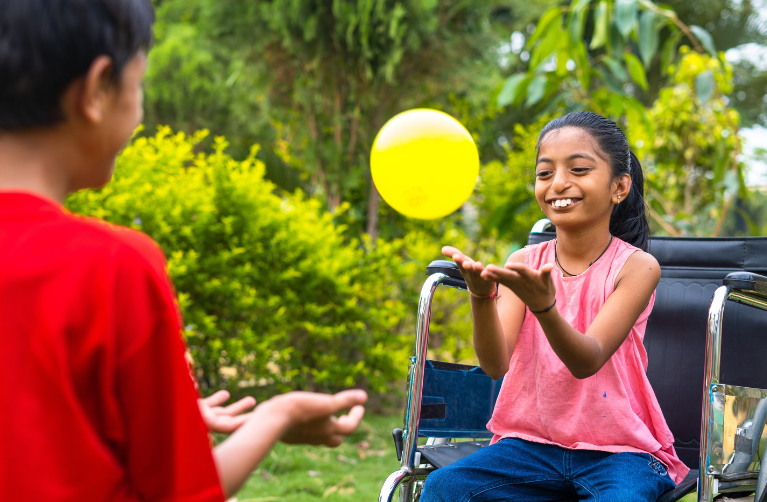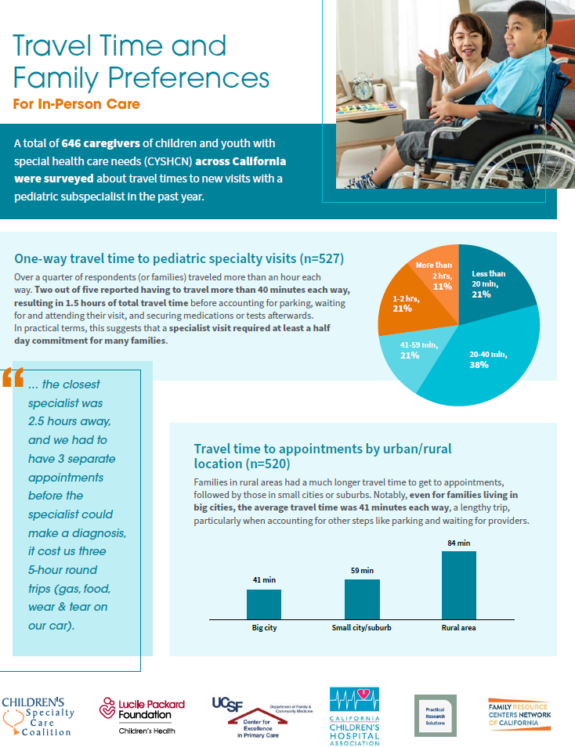Profile: Mary Doyle, MD, associate medical director, Los Angeles County California Children’s Services
Dr. Mary Doyle, associate medical director of Los Angeles County’s California Children’s Services program, has a caseload nearly big enough to fill Dodger Stadium.
L.A. County now is home to one-third of California’s CCS population, Doyle says, and the growth in numbers is matched by the increasing complexity of care. Indeed, the number of children served in Los Angeles County – now estimated at 50,000 – represents a kind of early alert system for emerging medications or adaptive devices because so many patients need them. “We have a real frontline view of cutting edge medical technology and treatments,” she says.
Doyle oversees occupational and physical therapists in her role as a pediatrician for the medical therapy program, as well as nurse case managers in the general CCS program.
In the medical therapy program, Doyle works alongside therapists and other CCS staff, personally examining children to assess their needs and get them appropriate services.
“It’s challenging for families because as these children survive and do well, often times the therapies are delivered in the home,” Doyle says. “We can’t send these parents home without support.
“The expectation of what families need to do is pretty high; their ability to cope varies with their economic circumstances and education, but most of them do pretty well with training and support.”
Doyle, who lives near Pasadena, also has a personal connection to children with special health care needs. Her 15-year-old niece has autism and her 9-year-old nephew was born with congenital heart disease and went through heart transplant at the age of 3.
Before she became an administrator, Doyle worked as a pediatrician in private practice, but “my heart and my brain drifted to children with complex needs,” she says. Finding it difficult to devote enough time to her complex patients, she became interested in policy as a way of making a greater impact on this population.
While she’s proud of her program – “I see tremendous value in case management, care coordination and helping families navigate the health care system” – she says she would like to see CCS’s eligibility criteria updated to admit children on a basis that’s not so diagnosis specific. CCS limits eligibility to certain conditions including cancer, sickle cell anemia, blindness and epilepsy, but covered treatments and services, and decisions on eligibility, can vary greatly by county.
As CCS has evolved from a program historically focused on physical mobility to one that is chronic disease-oriented, it has “become more obvious that there are more children with complex diseases and conditions that could be well served by the CCS case management model,” Doyle says.
That’s why she’d like to see one single portal whereby any child with special health care needs could enter and access the services and resources they need, regardless of condition. “Then, I’d like to see good integration among any programs that are going to serve that child – medical, social or educational.”
That would go a long way to helping the families she serves, Doyle says.
“I’m not only inspired by the children but the moms and dads and caregivers who, 24/7, are really promoting the health and well being of these children,” she says. “I have had numerous patients go on to accomplish great things.”
The Lucile Packard Foundation for Children’s Health is supporting the CCS Medical Advisory Committee, in which county CCS medical consultants work together to create a more uniform care system. The Committee is seeking to reduce county-level variations in how children are determined eligible for CCS services, how benefits are authorized, and how case management services are provided.



